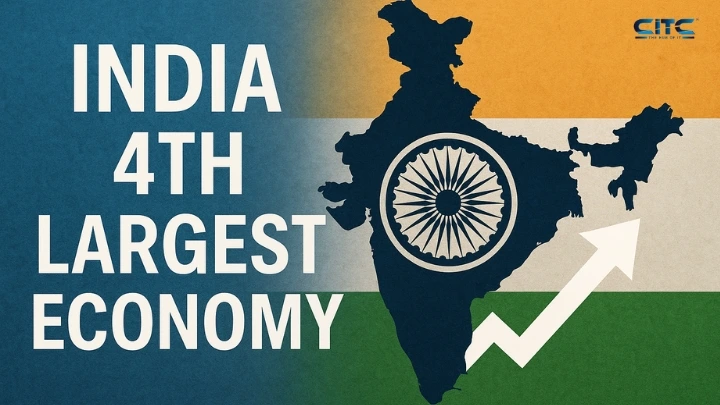Nov 26, 2019 Total Views: 2605
IELTS LISTENING PRACTICE
TEST
Hello. My name is Anand,
and today, we are going to talk about the listening module of the IELTS. I'm going to tell
you some of my top IELTS listening tips. So let's get started.
IELTS listening practice test. Get a piece of paper and a
pen and you
can write down your answers as you do the test. At the end of the test, we will
go through all of the answers. There are 40 questions. So let's start the test.
First, listen to the instructions. You will hear a number
of different recordings
and you will have to answer questions on what you hear there will be time
for you to read the instructions and questions and you will have a chance to
check your work all the recordings will be played once only the test is in four
sections now turn to section 1 you will hear a woman ordering some
goods from a
mail-order company by telephone first you have some time
to look
at questions 1 to 8 you
should answer the questions as you listen because you will not hear the recording
a second time listen
carefully to the first part of the conversation and
answer questions 1 to 8 cosmic
home delivery my name is Gary how may I help you today hello I'd like to place
an order certainly madam I'm afraid
our computer
system crashed earlier
today I'll have to take the details down on paper and then enter them
later when it's been fixed is that ok yes of course so
can I take your name please yes it's Alexandra Hornby sorry could you spell the
surname for me H yes then O R N B Y Oh fine and then your address that's number
28 Wood Road which is in Ilford I L F O R D and that's near
Dorchester the
postcodes NC1 and 2FR thank you and do you have
an account with us I do I've got the number here 9 double 4 5 6 7 8 1 is that
long enough 8 digits yes it is good now what would you like to order today I want
a coffee table I think there's only the one type I expect so perhaps you can tell
me the price.
I can use that to check later just in case there's more than
one yes it's 39
pounds 99p fine sorry about all these
extra questions it's no problem at all now that size of order value does mean
you're entitled to a free gift did you want to take up that option on this occasion
yes I do I've already got a calculator like the one on offer but I do
like the look of the handbag so I'd like one of those please certainly and can
I just check as an account holder you may have been sent a voucher oh yes for
a discount let me see the reference number we'll probably start with the letter
D huh it does and it continues B R 29 great now how would you like your order
delivered there's a
standard service within a week and then Express which comes
within two days or special, which means it arrives the same day mmm special
would be ideal but I know it's a bit expensive so I'll make do with Express
I think the standard is very slow it is, to be honest before you hear the rest of
the conversation you will have some time to look at questions 9 and 10 now
listen and answer questions
9 and 10 well
that's your order completed could I just trouble you for another minute or so
to ask you a couple of questions to help us improve our service as much as possible
yes firstly we do like to try and keep a record
of how customers have heard of Cosmic Mail Order how did you were it from
our advertising campaign oh I think I would have remembered any advertisements
on TV for
the example I only read newspapers occasionally so that would
have passed me by a friend of mine had been using it for years and encouraged
me to give it a go so I looked on the internet to find you to see
what was available on the site that's great thank you the second thing is we're thinking of introducing a number of promotional offers
oh yes I got a little brochure about them with my last order I've got the
list here so can I ask which ones appeal to you well let's see there's quite
a few things here that don't really apply to me actually for example my
mobile phone bills are so low that I hardly notice them likewise they shut down
the local cinema I do enjoy a meal out though so that
a discount could be of interest
and I like to get away at weekends when I can and some of the places
you want to visit are expensive so it would be lovely if they became cheaper
as for planes well I've been abroad for a while now and in any case, I prefer
the train where possible fine well thank you very much for your time not
at all section 2, you will hear a trainer giving a talk to a
group of cyclists first you have some time to look at questions 11 to 15 now
listen carefully to the first part of the talk and answer questions 11 to 15
hello, everybody, it's nice to see that so many of you made it even on
an evening
as rainy as tonight okay now whether you're new to cycling as a sport or
are returning to it after some years absence I'll just go over a few basic points
now race preparation is a complex business and there are many factors to consider
the first area of concern is mechanical now this involves the machine itself
that is your bike and also no less important in fact clothing this will
protect your body and aid your performance providing you wear the right kit
the next area to
concern yourselves with is the mental this is you as a person
you can have the best bike in the world but you won't get the most out of it
if you don't have the right mindset so tactics are important to consider another a factor which is essential to a good performance is a determination you need
to feel this so that you can really push yourselves to your limits to accompany
this you also need knowledge of your bike yourself physics other riders
the course and so on finally strange though it may seem after all I've
said so far you need relaxation if you can't switch off sometimes you won't
get to
recharge your batteries okay and that takes us on to the physical
side of race preparation the first and perhaps most obvious aspect of this
is training and we'll come to some of the details of that in a minute another an important aspect to pay attention to is diet and you'll soon find
that if you don't eat well you won't see yourselves performing as
well as you might then there's also the question of style and you'll need to learn
to develop the most effective ways for each of you to deliver
your performance
and the details of this depend on which kind of event you're competing
in and finally you need to take body care into account you need to stay
healthy in order to be able to give of your best right those are the basic ingredients
of race preparation, before you hear the rest of the talk you have some
time to look at questions 16 to 20 now
listen to the rest of the talk and answer questions 16 to 20 now I'd like to
turn your attention to some of the details of a good training
regime and what
you should and shouldn't do through the year let's consider various activities
in turn, the first thing to think about is circuit training this is an
indoor series of gym exercises designed to work on all parts of your body
this starts as the racing season closes with
the end of summer and continues right through the cold season and stops you
going off the boil when you aren't competing it's extremely beneficial although
I would stress you do need a qualified gym instructor to tell you
how to
do it properly next weight training this is also very good for cyclists and it
tops up the natural strength that cycling produces exercises need to be arranged
as part of a carefully calculated routine and this routine needs
to be sensibly followed it's a good idea for continuity to carry on using
weights throughout the year as you can lose strength just as quickly as you can
gain it something
simpler and requiring no equipment is mobility work while
cycling has a great many benefits for the body it doesn't work every part of
it and indeed keep some parts locked in pretty much the same position so exercises
that involve twisting and turning and generally promoting flexibility
are
advisable before the start of each race throughout the
summer season
another important activity is pleasure riding perhaps this doesn't sound
so important to you but you don't race all year and when you do race it's pretty
hard riding so you can sometimes forget that cycling is actually basically
a fun thing to do so when you hang up your racing bike at the end of the
summer get out another bike and
go for some gentler
enjoyable rides during the winter weather permitting of course and finally
running this is, of course, another sport in its own right and for this, the reason some cyclists are rather sniffy about it however it is a good exercise
and maintains aerobic fitness very effectively but it is rather hard on
the knees and in different ways from cycling so you're best advised to keep your
running two out of the racing season and wrap up well against the cold when
you do go so now section three you will hear three students anna jane and mark
planning a project about cinema on
their media studies course first you have
time to look at questions 21 to 23 now
listen to the first part of the conversation and answer questions 21 to 23
so Jane mark we need to press on with the assignment yes we do Anna and we need
to begin by going to the best sources of information right no we're looking
into how films get altered sometimes if they're not going to do very
well we need to know quite detailed things so ordinary magazines you know leisure
interest ones may lack the
a detail we're after specialist magazines on
the other hand will probably be helpful I think that's true okay so we'll the route out some of those and what else there ought to be stuff available online
but we'll have to be selective sure not general cinema websites you mean
I think it would be useful to go onto studio websites then we'd get pretty
specific information even if it might be a bit biased yes okay anything else
I think we also need to think about the point of consumption so
perhaps reviews would be good to look through okay though we'll get most by looking
at local reviews, I think I agree good now you have time to look at questions
24 and 25 now
listen to the next part of the
conversation and answer questions 24 and 25
so far so good now we'll gather all that together we can
take one source each and then I don't know about what Jane I mean okay so
we get all this stuff probably loads of it but do we know how to assess the usefulness
of it I know it'll all be factual and so true in that sense but we need
to know what it can really tell us perhaps we should cross that bridge when we
come to it mark yes though I think Jane's got a point
but the problem for me is the context we're working in we've got the assignment
instructions and in a sense it's all very
straightforward we know which
parts are worth how many marks and so forth but the focus seems to be heavily
on the objective and quantitative side of things whereas I would
be hoping to be asked for more interpretive work and there would have to
be time to do that within the framework we've been given well again I think
we should just see how we go with it now
you have time to look at
questions 26 to 30 now
listen to the final part of the conversation and answer questions 26 to 30
should we take that we're clear on just how films are altered good idea we'll
list the various cures that filmmakers use when a film looks like it might
be going to fail the first one is called tweak every joke sometimes they change
lots of the jokes after showing the first version to a test
audience comedy
is the only film genre with a reliable formula the more of the audience
laugh the more income the film gets and it's not very funny if your film
makes a loss and the next one they call to change the ending occasionally they completely
change the way of the film ends it seems a bit strange maybe but the problem
is it's far from easy to know in advance what reaction you'll get from
an audience
so if it turns out after all that the test audience doesn't like your ending
you've no choice but to do another one what's the third one that'd
be fixed the tone if, for example, your film begins as a kind of gentle comedy
but then gets too serious or horror like audiences get confused so one the thing that really matters is being consistent you mean yes or that's the logic
I think audiences don't want to have to switch track it's more complicated
than people imagine isn't it now the next cure is a big one reshoot
this may seem drastic but in some cases, it's the only option available
it's
very expensive of course but the film's backers will see
this as protecting
their investment are there any others one more and it's another big one
or at least has the potential to be a big one it shifts the genre and this is
done when the test audience seemed to only like one half of the equation as it were
maybe you made a musical but they only like your comedy storyline, not the songs
so you do it all again without the songs it could broaden the film's he'll
get a wider audience it's weird to think how much extra work has gone into some
films aren't it section four you will hear a talk about history.
The Mediterranean Sea first you have time to look at questions 31 to 40 now
listen to the first part of the talk and answer questions 31 to 37 now in looking
at the history of anywhere, we need to accompany our discussion of the facts
with some consideration of what facts mean or which facts have meaning but
more of that later let's start with looking at one very important period of the
history of the Mediterranean the period of Roman the influence this was born out
of the death of Alexander the Great his grip on the area went and what directly
ensued was a period of intense conflict which focused on the eastern Mediterranean
as opponents sought to gain control of that area Rome began to emerge
from this as a potentially dominant force but obstacles such as a lack of overall
planning and in particular the ever-present menace of piracy lay in the way
of success.
gradually the Romans improved the power of their ships
and fighting the equipment they also formed a series of alliances which effectively reduced
the size and number of enemies and a key measure they took was creating an
office of government specifically charged with repairing their fleets however
many ships they and their enemies had Rome from now on would have the highest proportion out patrolling and fighting there were, of course, no engines
in ships in those days and another aspect in the battle for supremacy
was speed through human effort rivals built ships with ever-
increasing numbers
of oars but what really mattered was the amount of
human pulling strength attached to each one and the Romans benefiting from they are a great population of slaves was able to have every or pulling faster and harder
than anyone else eventually, Rome's dominance was more or less complete
their ashes of the sea became their enjoyment of
the sea their name for the
The Mediterranean translates as our sea and that's
how they saw it the shores were of course by now very well fortified but now
the Romans began also to demonstrate their comfort in power and put up a great
many large houses visible far out to sea wealthy merchants and retired generals
lived in leisure in these temples to their own prosperity the maritime
security of the Mediterranean and the immense availability of trading destinations
meant that all sorts of suppliers and craft producers
clustered round
any reachable section of the Seas edge some of these settlements were small
while others were large producing salt fish in Italy for example or the fish a sauce that was sent to every corner of the empire from Spain with a dominance of
the seaways established the primary purpose of ships evolved from fighting other
ships to transporting goods economics generated a drive to carry as much
as possible on each trip and as ships were built for carrying loads such as
wine or stone
exclusively these types of specialized vessels led to
greater cost-effectiveness
and so things continued for many years now
listen to the rest of the talk and answer questions 38 to 40 however, I referred
before to the question of needing to consider how to approach history
assumptions about what history is are as varied as the historians who have
made the Mediterranean the subject of their studies three key historians have
molded in different ways our approaches to understanding the Mediterranean
past Michelle Bala Phenom broad L and Nicholas Halden the first of these
Bala
felt strongly that an approach based on examining
countries around the Mediterranean as if they shaped its history
was inadequate more was to be learned he argued by treating the Mediterranean
as one of a number of seas such as the Black Sea and the Atlantic Ocean
and thus integrated into trading routes that stretched from Madeira to crack
off our second historian, Fenn on broad L took a rather different though related
tack he argued that the ways societies operate right down to
their individual
members actions are subject to permanent conditions such as whether they
inhabit mountain plane or sea features of the coastline and adjacency to
the waters of the Mediterranean are thus the focus of his approach and then we
can add a third way of looking at history or at least the history of the Mediterranean
and that's the one propounded by Nicholas Halden his arguments
are asserted quite strongly not least because he sees a greater consistency
across time than many other historians have allowed for there are those
who take ecological events particularly
catastrophes such as the volcanic
destruction of Pompeii to be the shapers of different sections of the Mediterranean
history hoarding says these are simply incidents and that the major
ride on
through them for him while there may
be cultural mutations and fashions in types of consumer goods what matters is
the system of trading goods that satisfy primary needs such as grain oil metals
and timber so for us out of this complex of views our job is to seek a synthesis
and form a
sophisticated
approach not just to the Mediterranean but
to any time or region in history okay
how did you do? let's look at the answers to all of the questions starting with
section one and number one is Hornby remember with the IELTS listening test
your spelling must be correct number two it's Ilford number three nine four
four five six seven eight one in the recording it was nine double four five
six seven eight one number 4 coffee table number 5 thirty-nine pounds
and ninety-nine so you can write it down as 39.
99 number 6 handbag remember
the spelling is like this h a n D b a g even though she said handbag there
is a d there number 7 the voucher code was DBR29 you may have written
BR29 because the man said the D and the woman finished the voucher code
herself number 8 is Express
number 9 A and D number
10 D and E and Section two number 11 is clothing 12 determination 13 relaxation
14 diet 15 body care 16 was B 17 C throughout the year so it's all
year-round 18 was A 19 B and 20 was B as well this was a tricky one in
the talk the man said out of the racing season and he told his students to
wrap up to protect themselves from the cold so it was winter B section 3 21 is
a specialist magazine 22 Studio websites 23 is reviews or local reviews you
can say as well 24 A 25 B
26 was income 27 reactions 28 consistent 29 reshoot
you can spell it with or without the hyphen you do not need the hyphen there 30 very
difficult spelling genre and section 4 31 is eastern 32 piracy number 33
repairing number 34 slaves a great population of slaves number 35 large
houses or you can simply write houses fish sauce is number 36 specialized
is 37 you can also spell specialized Z E D on the end that's the American
English spelling 38 is B 39 C and 40 F so how does your score compare
to the band score so well if you count up your score if you got between
nine and fifteen marks that's a band 4 for a band 5 you need between 16
and 22 bands 6 between 23 and 29 bands 7 30 to 34 band 8 35 to 38 and if you got
39 or 40 you will get a band 9 so thanks for doing the tests I hope you did
well and please don't forget to share and like this video and if you want
to get more videos like this please subscribe to the channel.
I invite you to come to visit
our website at www.citcchandigarh.com. We have a quiz there on some of
these tips you've just learned. And also, I would recommend visiting
another site: www.digitaltrickz.com for a lot more information on the test.
I know you're going to do well on test day. So good luck. I'm rooting for
you; I know you're going to do a good job. Until next time.






